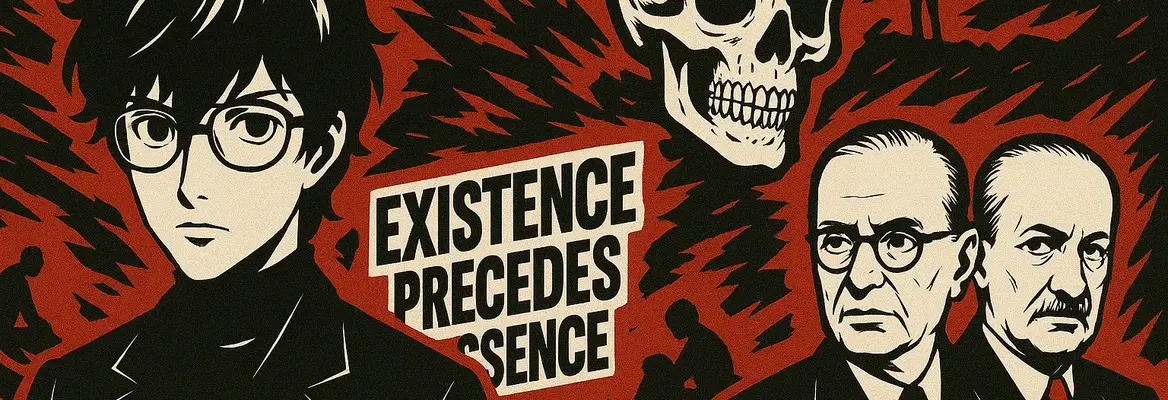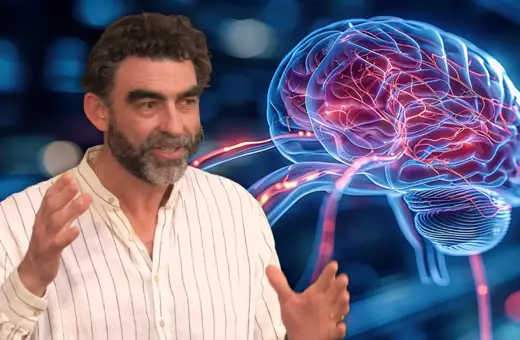What if our deepest desire isn’t to be free but to escape freedom itself? Philosopher Benjamin Carpenter, Visiting Fellow at UEA, argues that the Persona series — a globally successful role-playing video game franchise, having sold over 22 million copies worldwide — brings existential ideas to life by showing how our search for meaning is haunted by a longing to surrender the very freedom that defines us. In exposing our flight from freedom, Persona challenges us to confront the most uncomfortable truth of all: that our desire for control begins within ourselves
The Persona video game series has a reputation for exploring questions of personal and political identity. Who am I? What is the real me? What is the true self? These are all questions explored within these games. The series provides ripe contexts within which to discuss the self, identity, and the ways in which these are constructed and lived out. The Latin term persona—an ancestor to the word “person”—originally referred to the masks worn on stage by actors.
The lineage of persona-qua-mask remains central to Persona 5. Characters confront their inner selves by tearing off their masks to reveal what lies beneath—a ritual of self-revelation that captures the game’s preoccupation with freedom and identity.
Though Jung’s influence is evident, Persona 5 is less about psychoanalysis than about freedom. The game explores how individuals assert or abdicate agency in a world defined by control. This essay reads Persona 5 through existential philosophy—Sartre, Heidegger, and Nietzsche—to ask what it means to choose authentically.
Persona 5 provides a vivid context for exploring existential concerns about how we live and the choices we make. At its core lies the question of agency: how we embrace freedom in a world shared with others.
Persona 5
The player takes on the role of Joker, who leads the Phantom Thieves, a party of teenage rebels who use their supernatural powers to reform corrupt adults, through Mementos, a vast multilayered dungeon in the form of a subway system that represents the general public’s unconscious mind. Throughout the game, the party has spent much time exploring this maze of shifting paths, fighting shadows, and changing the hearts of wrongdoers. Despite this, they know little about Mementos beyond its belonging to the metaverse, the cognitive reality wherein the Thieves summon their personae to face shadows and change hearts.
The cognitive world is a place of distortion—shaped by the warped desires of individual hearts. From the perverted PE teacher to the corrupt would-be prime minister, the Thieves have seen many twisted hearts, each taking the form of a palace that embodies each individual’s distorted version of reality. Mementos, however, resembles the Shibuya metro system and appears to have no ruler. It is connected to the collective unconscious—if not part of it.
Aside from the requests to change hearts, the main drive to explore Mementos comes from Morgana, the Phantom Thieves’ guide to the cognitive world. Yet Morgana cannot remember his own past, left only with a sense that he should be human and that his true self lies within Mementos.





















Join the conversation